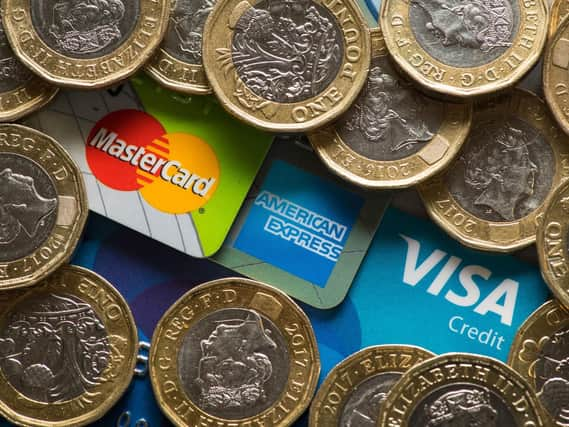Household borrowing up by 11 per cent in High Peak


The TUC has warned that household debts are at 'crisis level', blaming austerity and slow wage growth for increasing the burden.
UK Finance figures show that the average High Peak household borrowed around £1,335 in unsecured debt between April and June last year, the most recent period for which figures are available.


Advertisement
Hide AdAdvertisement
Hide AdThe figure, which does not include secured loans such as mortgages, means households borrowed roughly £129 more than during the same three months in 2013.
It means that the area collectively took on an additional £49.4 million in loans including credit card debt, car finance schemes and bank loans.
However, unsecured borrowing was down six per cent compared to the same period in 2017.
Levels of borrowing in High Peak were lower than across the East Midlands in general, where the average household took on £1,431 in unsecured debts between April and June 2018.
Advertisement
Hide AdThe figures also reveal in the difference in borrowing across High Peak.
Advertisement
Hide AdIn the SK13 postcode area, households borrowed an average of £1,474, 42 per cent more than the average £1,038 in S33.
Across the UK, households borrowed an average of £1,378 in unsecured debts, with those in the south east and London generally taking on more than in other parts of the country.
The average amount borrowed in the last five years has increased by nearly 20 per cent.
Advertisement
Hide AdThe TUC said its own analysis suggested that unsecured debt levels reached new highs in 2018, equivalent to £15,385 per household in the third quarter of the year.
Unsecured debt as a share of household income is now more than 30 per cent, the highest it has ever been, and above the level it reached in 2008 ahead of the financial crisis, said the TUC.
Advertisement
Hide AdFrances O'Grady, TUC general secretary, said: "Household debt is at crisis level. Years of austerity and wage stagnation has pushed millions of families deep into the red.
"The Government is skating on thin ice by relying on household debt to drive growth.
"A strong economy needs people spending wages, not credit cards and loans.
"Our economy is not working for workers. They need stronger rights and bargaining powers."